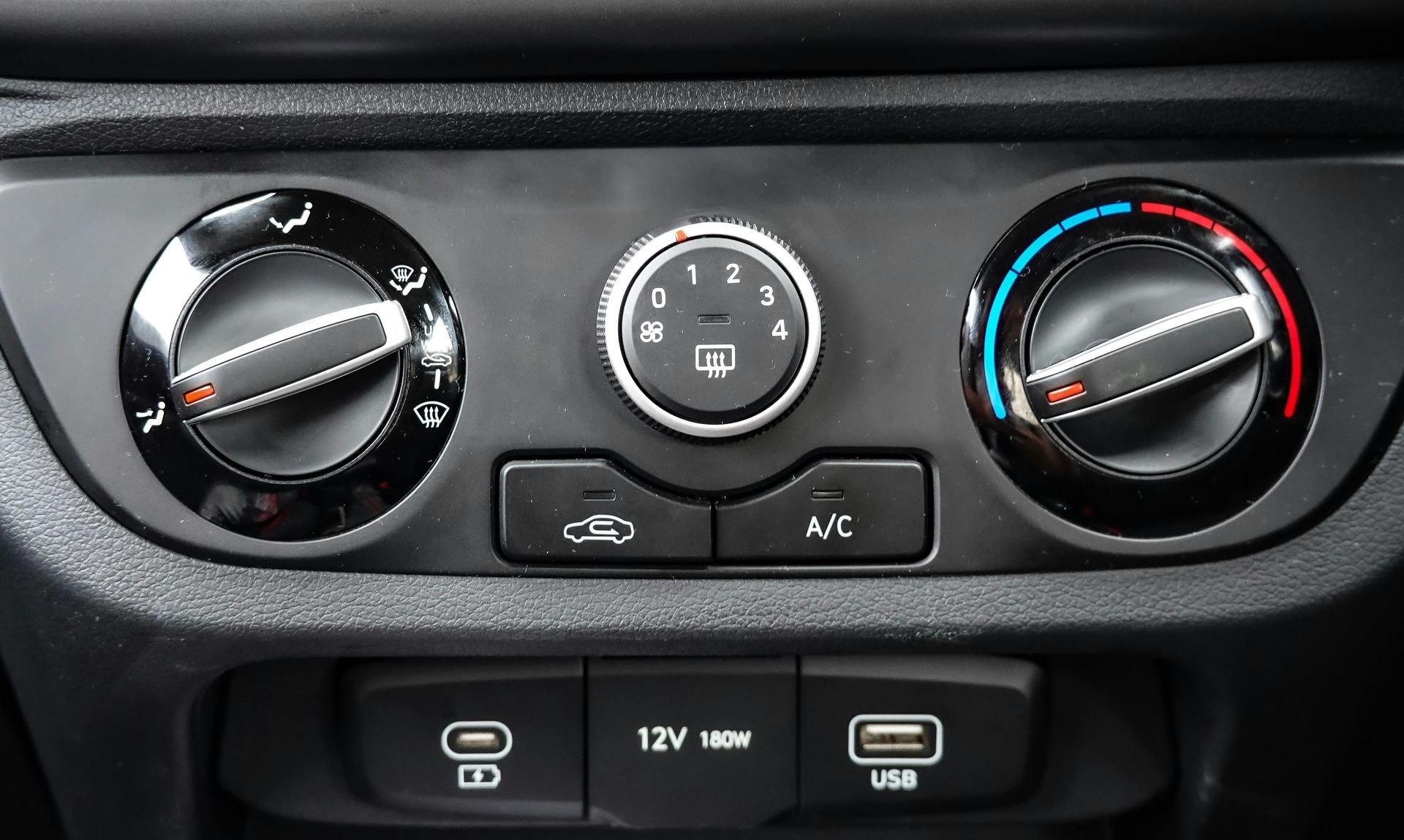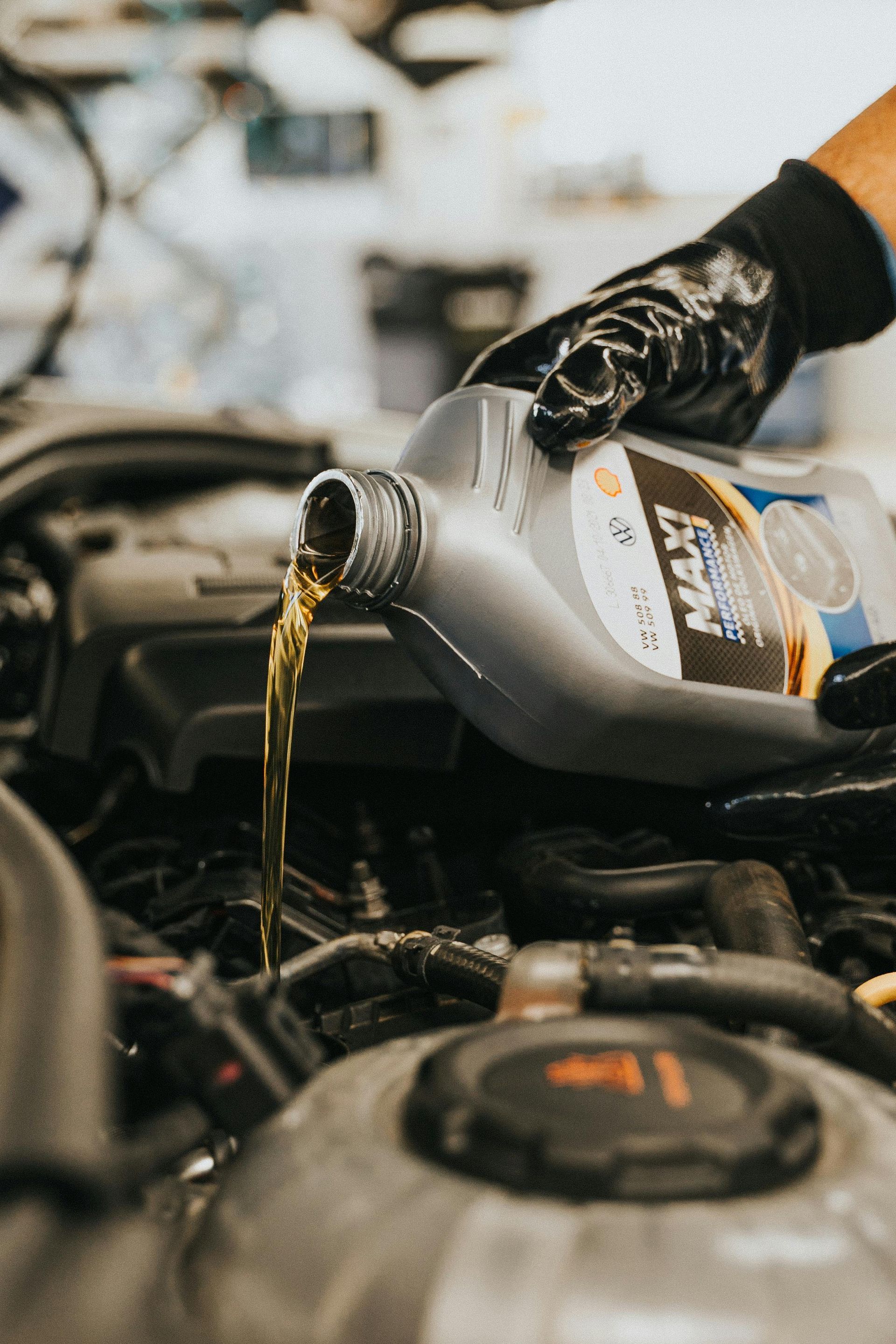Essential Tire Maintenance for Late Summer Adventures in Colorado Springs
Late summer is prime time for road trips around Colorado Springs. Whether you're planning a drive up Pikes Peak, exploring the scenic routes to Cripple Creek, or heading out to the Great Sand Dunes, your tires are what keep you safe on Colorado's diverse terrain. The combination of mountain roads, varying elevations, and temperature changes makes proper tire care especially important for Colorado drivers.
Here's everything you need to know to keep your tires road-trip ready for those final summer adventures.
Check Tire Pressure Weekly
Why it matters in Colorado: Tire pressure changes with altitude and temperature. For every 1,000 feet you climb in elevation, tire pressure drops about 0.5 PSI. When you drive from Colorado Springs (6,035 feet) to the summit of Pikes Peak (14,115 feet), your tire pressure can drop significantly.
What to do:
- Check pressure when tires are cold (before driving)
- Use the pressure listed on your driver's side door jamb, not the tire sidewall
- Adjust for altitude changes on mountain trips
- Carry a portable tire gauge and pump
Colorado tip: Check your spare tire pressure too. Mountain roads can be unforgiving, and cell service isn't always available in remote areas.
Inspect Tread Depth Before Every Trip
Colorado's mountain roads demand good traction. Whether you're dealing with loose gravel on backcountry roads or sudden summer storms, adequate tread depth can mean the difference between a safe trip and a dangerous situation.
Easy tread check methods:
- Penny test: Insert a penny into the tread with Lincoln's head down. If you can see the top of his head, replace the tire
- Quarter test: For better safety margins, use a quarter instead
- Look for wear indicators: Small bars of rubber that appear when tread gets too low
Signs you need new tires:
- Tread depth below 4/32 inch
- Uneven wear patterns
- Sidewall cracks or bulges
- Age over six years (check the DOT date code)
Rotate Your Tires Regularly
Mountain driving and city commuting create uneven wear patterns. Front tires handle steering and braking forces differently than rear tires, especially when climbing steep grades around Colorado Springs.
Rotation benefits:
- Extends tire life by 20,000-30,000 miles
- Maintains better traction on all four corners
- Saves money in the long run
- Improves fuel economy
When to rotate: Every 5,000-7,500 miles or with every other oil change.
Watch for Road Damage
Colorado roads can be tough on tires. Construction zones, seasonal freeze-thaw cycles, and mountain debris create hazards that can damage your tires without you realizing it.
Common Colorado road hazards:
- Sharp rocks from mountain runoff
- Potholes from winter freeze-thaw cycles
- Construction debris on Highway 24 and I-25
- Gravel on scenic mountain roads
Weekly inspection checklist:
- Look for embedded nails or screws
- Check for cuts or punctures in the sidewall
- Feel for vibrations while driving
- Listen for unusual road noise
Prepare for Temperature Changes
Late summer in Colorado Springs can mean 90-degree days and 50-degree nights. These temperature swings affect tire pressure and rubber flexibility. Mountain trips add another layer of complexity with elevation changes.
Temperature effects:
- Tire pressure increases in heat, decreases in cold
- Hot pavement can reach 140°F or higher
- Sudden altitude changes stress tire materials
- UV exposure at high altitude ages rubber faster
Protection strategies:
- Park in shade when possible
- Monitor pressure more frequently during hot spells
- Consider carrying a tire pressure monitoring system
- Replace tires showing signs of UV damage (cracking, fading)
Load Your Vehicle Properly
Road trips mean extra cargo, but overloading can cause tire failure, especially on mountain grades. Colorado's steep roads put extra stress on overloaded tires.
Safe loading tips:
- Check your vehicle's maximum load capacity (found on the door jamb sticker)
- Distribute weight evenly
- Don't exceed individual tire load ratings
- Increase tire pressure if carrying heavy loads (follow manufacturer guidelines)
Mountain driving considerations:
- Extra weight makes climbing harder on tires
- Steep descents increase heat buildup
- Uneven loads affect handling on winding roads
Plan for Emergency Situations
Colorado's remote mountain roads mean you might be far from help if you have tire trouble. Being prepared can turn a potential disaster into a minor inconvenience.
Essential emergency kit:
- Full-size spare tire (properly inflated)
- Quality jack and lug wrench
- Tire repair kit for minor punctures
- Portable air compressor
- Reflective triangles or flares
- Basic tools and work gloves
Know your route: Before heading out, research your planned route. Note where gas stations and tire shops are located, especially on less-traveled mountain roads.
Choose the Right Tires for Colorado Driving
Not all tires are created equal for Colorado conditions. The right tire choice depends on your typical driving patterns and the types of road trips you take.
All-season tires: Good for most Colorado Springs driving and moderate mountain use.
All-terrain tires: Better for frequent mountain driving, camping trips, and rough roads.
Performance tires: Excellent for highway driving but may wear faster on rough mountain roads.
Consider these factors:
- Tread pattern for Colorado road conditions
- Temperature rating for high-altitude driving
- Load capacity for road trip gear
- Warranty coverage for your driving style
Timing Your Tire Maintenance
Late summer is actually the perfect time for tire maintenance. You can address any issues before fall weather arrives, and tire retailers often have good deals before the winter tire rush begins.
End-of-summer maintenance schedule:
- Deep inspection after summer mountain trips
- Rotation and balancing before fall
- Alignment check if you've hit potholes or curbs
- Consider replacement if tires won't make it through winter
Professional Inspection Benefits
While you can do basic tire checks yourself, a professional inspection can catch problems you might miss. This is especially important before major road trips through Colorado's challenging terrain.
What professionals check:
- Internal tire damage not visible from outside
- Precise tread depth measurements
- Wheel alignment and balance
- Suspension components that affect tire wear
- Proper mounting and valve stem condition
Keep Your Adventures Rolling
Late summer road trips around Colorado Springs offer some of the year's best driving experiences. From the stunning views along the Pikes Peak Highway to the historic charm of mountain towns like Manitou Springs and Woodland Park, proper tire maintenance ensures you can enjoy every mile safely.
Don't let tire trouble cut your adventure short or put your family at risk on mountain roads. Our tire experts know the unique demands of Colorado driving and can help you choose the right tires and maintenance schedule for your vehicle and driving style.
Schedule your pre-road-trip tire inspection today. We'll check your tire condition, adjust pressures for your planned routes, and make sure you're ready for whatever Colorado's roads have in store. Drive with confidence knowing your tires are prepared for the journey ahead.












